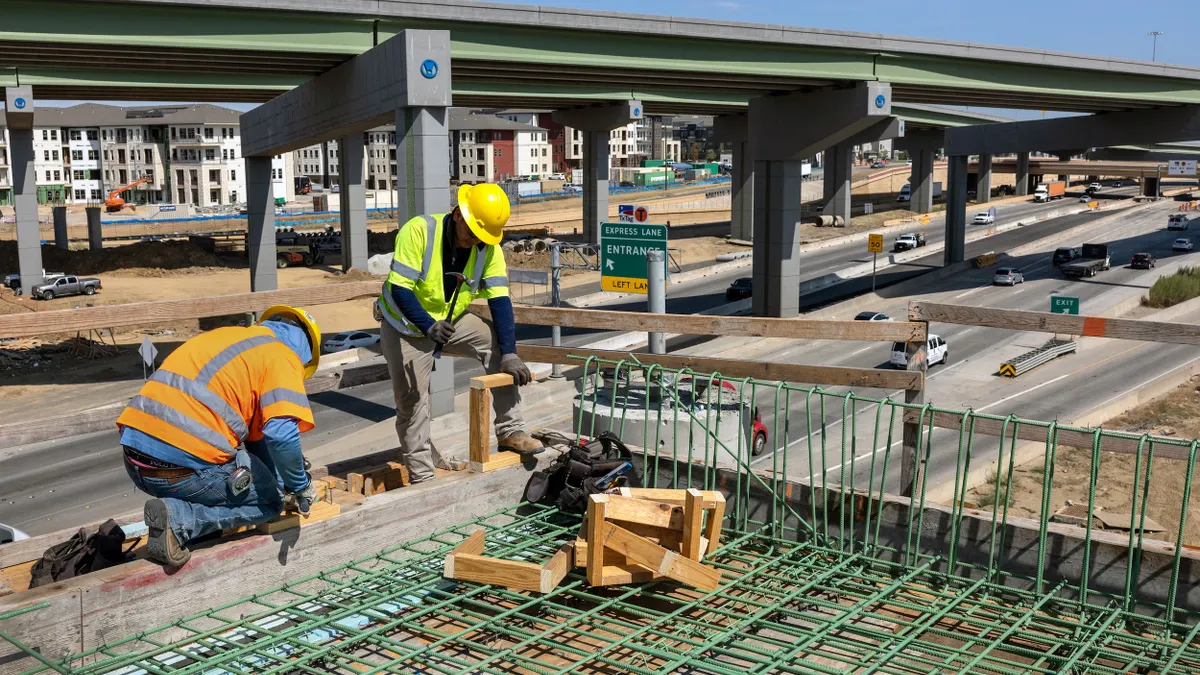Dive Brief:
- The backlog of nonresidential construction projects in Q4 2017 rose 2.25% from the third quarter to 9.67 months, the highest Construction Backlog Indicator (CBI) reading ever, according to the Associated Builders and Contractors. The CBI is up 16.3%, or 1.36 months, from Q4 2016.
- The Northeast reached its highest-ever backlog level of 10.36 months and is up 23% on a year-over-year basis. The commercial/industrial segment also reached an all-time backlog high of 10.1 months, while construction firms with revenue of between $30 million and $50 million notched a record backlog of 11.89 months.
- Anirban Basu, the ABC's chief economist, said the robust backlog that most construction firms are experiencing, combined with other positive economic domestic and international economic conditions and the results of 2017 tax reform, should drive increased construction spending in 2018. However, an inflationary economy that leads to higher interest rates could potentially deliver a hit to backlogs with more expensive borrowing costs. Possibly adding to inflationary pressures are trade disputes that could push costs for materials like softwood lumber, steel and aluminum higher.
Dive Insight:
The last U.S. Census Bureau construction spending report released earlier this month showed that outlays were virtually unchanged from December 2017 to January 2018 but did manage a 3.2% increase year over year.
That report was issued about the same time President Donald Trump said the U.S. would begin imposing a 25% tariff on steel imports and a 10% tariff on aluminum. Construction industry reaction was swift with groups like the Associated General Contractors of America warning that a tariff, on top of already-increasing prices for steel and aluminum, could stall or even kill construction projects and could result in budget overruns for those already underway.
According to the National Real Estate Investor, some companies have already seen a 10% increase in the price of steel even though the tariffs are not scheduled to go into effect until the end of this week.
The administration has exempted Mexico and Canada from the new tariffs and, according to CNN Money, has rolled out an application process for companies that wish to be exempt from the new regulations. However, the process could be an onerous one as companies must complete an application for each unique product, according to Automotive News. The exemption requests will be posted for 30 days, and approvals are subject to objections from companies in the U.S.











